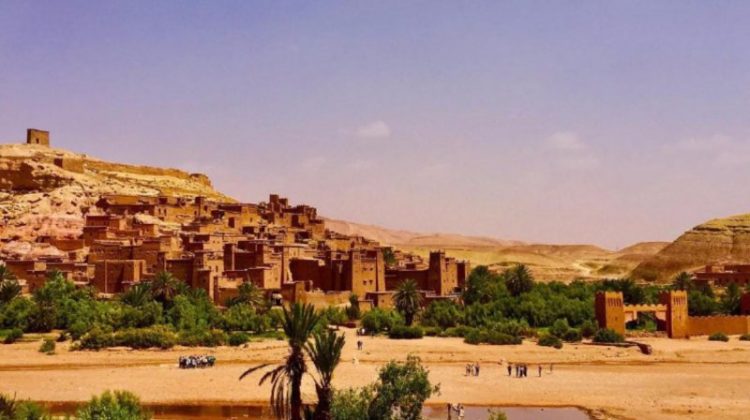
The Berber people, also known as Amazigh, are an indigenous group , they are one of the oldest cultures in North Africa and pre date the Arabs. Berbers are well-known for their welcoming nature.
Berber culture and history is one of the primary influences on modern Moroccan culture, shaping the customs, cuisine, artwork, and more.
By learning more about Berber culture and heritage, you will not only deepen your understanding of Morocco and its culture, but also appreciate the rich and vibrant part of its history.
Your visit to Morocco can become even more meaningful and memorable when you have a greater appreciation of its cultural heritage.
Table of Contents
Berber History
Long before the Arabs arrived in northwest Africa, bringing with them Arabic language, culture, and the religion of Islam, this area was home to the Berber people.
In the centuries after Arabs arrived in Northwest Africa, Berber culture incorporated new aspects such as Islam while maintaining language, art, cuisine, and many other cultural foundations.
The culture flourished, growing into two of the most powerful dynasties of Moroccan history, the Almoravids and Almohads.
These kingdoms not only ruled a large area of northwest Africa, but expanded into Spain as well. Despite many attempts by outsiders to colonize and control their land,
Berber Culture and Way of Life
While Berber people are often referred to collectively, there are actually dozens of distinct groups within this culture.
If you travel through different areas such as the Northern coast, the Rif Mountains, the High, Middle, and Low Atlas, and the Sahara, you will notice variation in language, clothing, cooking, architecture, social structure, marriage customs, and style of communication.
For example, many women in the Sahara region wear breezy, brightly covered shawls that cover their bodies and heads, and can be adjusted easily to shield their faces from the sun or sand.
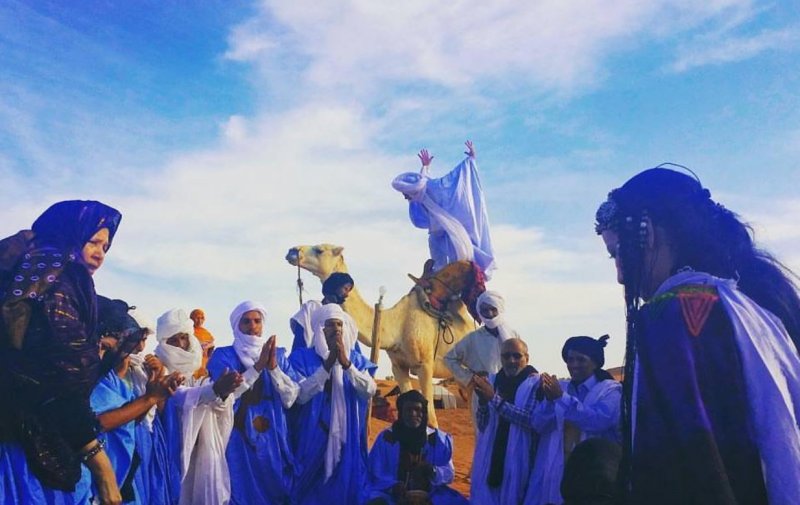
Women in the Rif mountain area often wear wide-brimmed straw hats and long dresses with thick red and white striped blankets tied around their waist, ideally suited to cooler mountain climates and farm work.
In Morocco women tend to be covered and many wear a veil. As a westerner you would not be expected to wear a headscarf or veil but you would be expected to dress in a respectable manner. This means no skimpy tops or shorts which is offensive.
There is a common misconception by foreigners that Berbers are mostly desert nomads who use camels to get around. Berber traders have indeed been essential to trans-Sahara trade routes, but this is not universal.
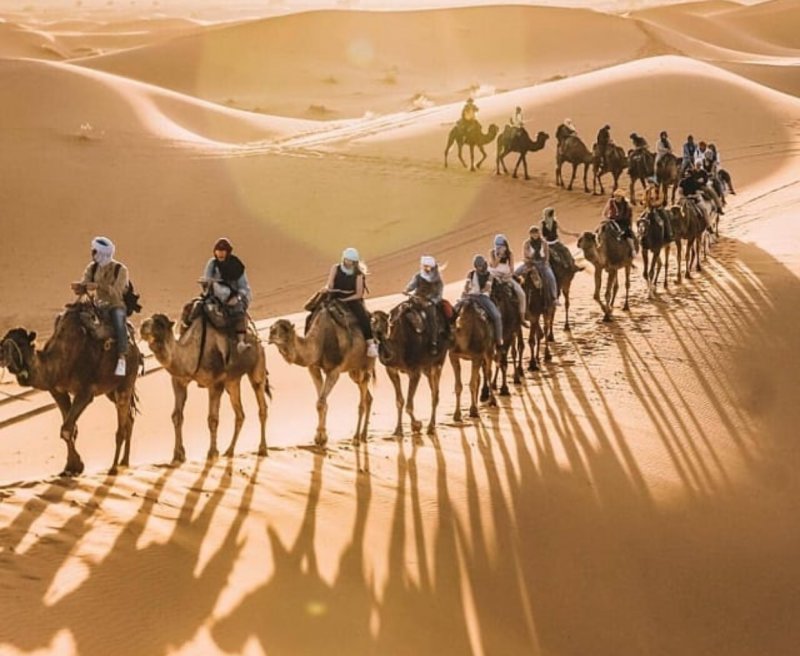
In fact, throughout history many Moroccan Berber people have been small-scale farmers and herdsman, since many of the mountainous and coastal areas receive sufficient rainfall to support grain, fruit, olive trees, almonds, vegetables, and grazing animals.
The type of crops grown and animals raised different depending on the climate, geography, and cultural preferences of each region.
Today, some people continue to farm, while others have moved to cities and pursued careers as business owners, restaurateurs, doctors, politicians, and more.
Berber Culture Art and Music
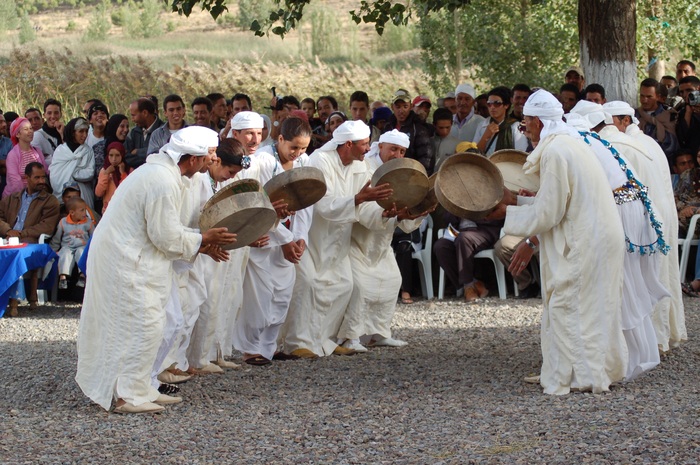
Artistry is an important aspect of Berber culture and varies across regions.
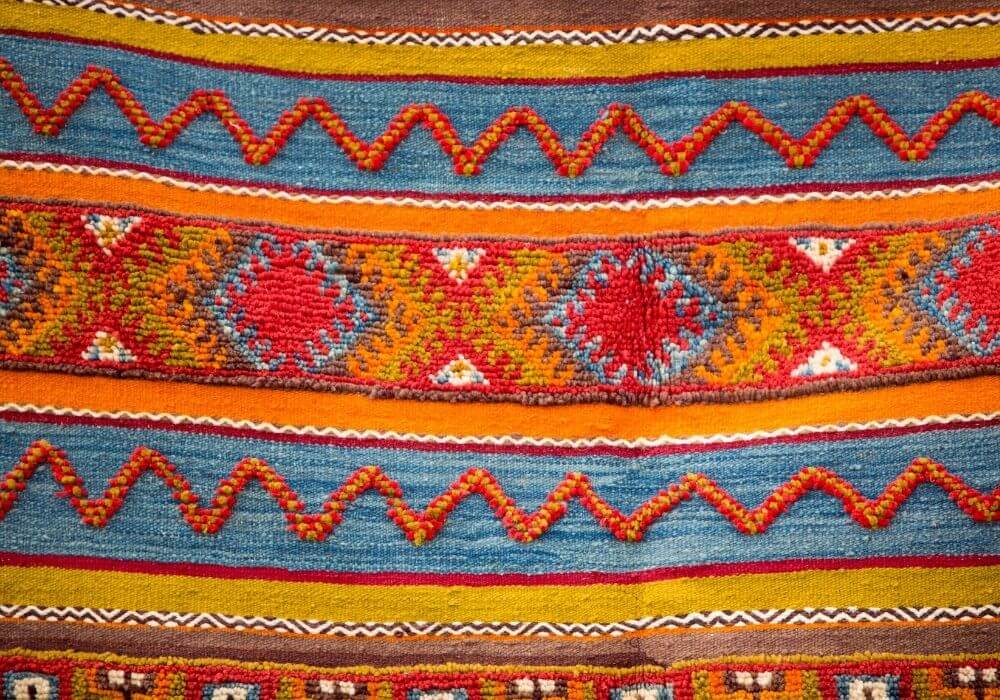
Art is most often incorporated into useful items such as rugs, pottery, clothing, jewelry, furniture, and architecture.
You might see intricately carved and painted woodwork, tapestries with fringes or geometric designs, handmade silver jewelry, or dishes with bright, colorful designs.
Similarly, music is ubiquitous in Berber culture and is an essential part of celebrations such as weddings and holidays. It might include flutes, drums, string instruments, and singing, and may be accompanied by dancing
Music styles are highly localized – they sometimes even differ between nearby villages! If you are traveling throughout the country, make a point to notice how styles of art and music change.
Berber Festivals
Some Berber festivals have become particularly well-known in Morocco. One of these is the Imilchil Marriage Festival, held each September in the Middle Atlas Mountains by Berber tribes of the Aït Yaazza culture.
Nearly 30,000 people from surrounding villages assemble to feast, dance, socialize and give young people a chance to look for a spouse.
If a man and woman wish to marry, they will meet together with their families, and if all goes well, marry later on in one of their villages.
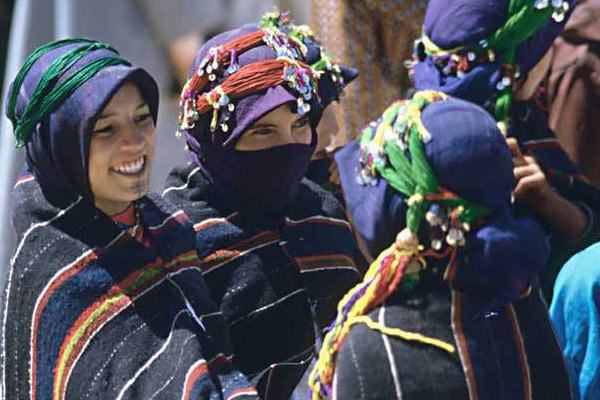
In the past, it was closed to outsiders, but is now open to visitors and tourists. This festival reflects the beliefs of some Berber cultures that young men and women should have freedom to choose who to marry. This belief is widely held in Morocco.
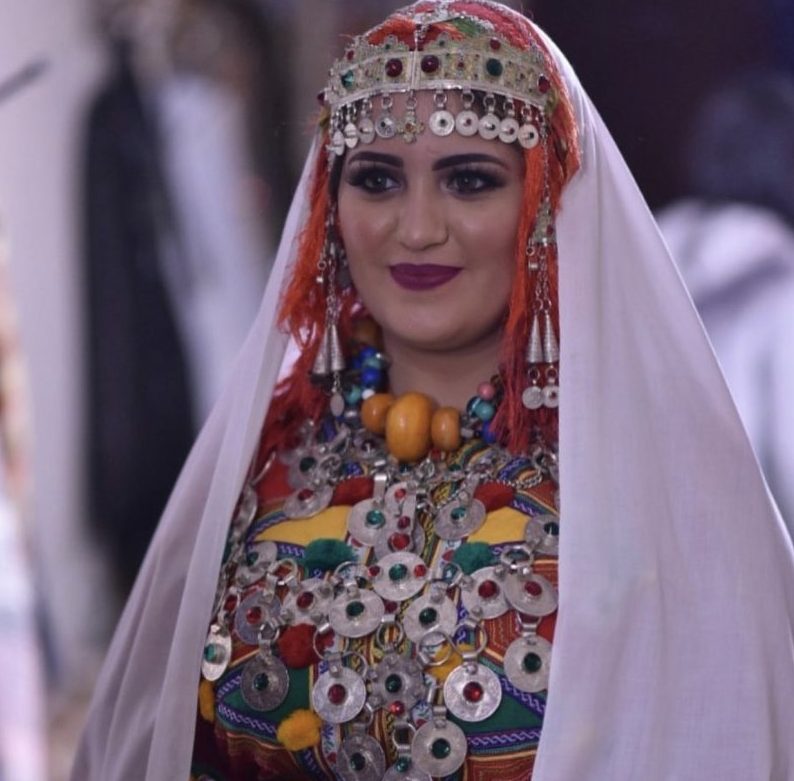
Fantasia is another festival rooted in Berber traditions.
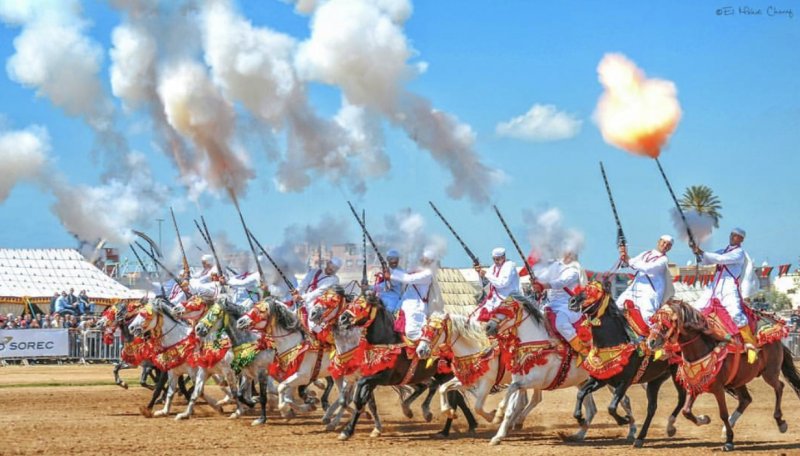
There are also Fantasia dinner shows catering to tourists who want to see it.
In addition to local festivals, nearly all Berber people celebrate the Islamic holidays of Ramadan, Eid al Fitr, Eid al Kabir, and Ashura.
Berber Language
The language of the Amazigh is known as Tamazight. Originally, it was one language, but over millennia has diverged into at least thirty distinct languages and hundreds of dialects.
Tamazight is primarily a spoken language, but it has had its own alphabet and writing system for approximately 2,500 years.
While Arabic is widely spoken in Morocco, multiple Berber languages are also spoken, written, and taught by millions of people, and you’ll often see schools and government buildings with names listed prominently in Arabic and Amazigh.
Religion
Today, nearly all Moroccan Berbers are Muslim. In the 9th and 10th century, Arab traders and colonizers arrived in the region, bringing Islam with them. Prior to that, most Berbers were Christian or Jewish, and some followed local animist faiths.
Berber Hospitality
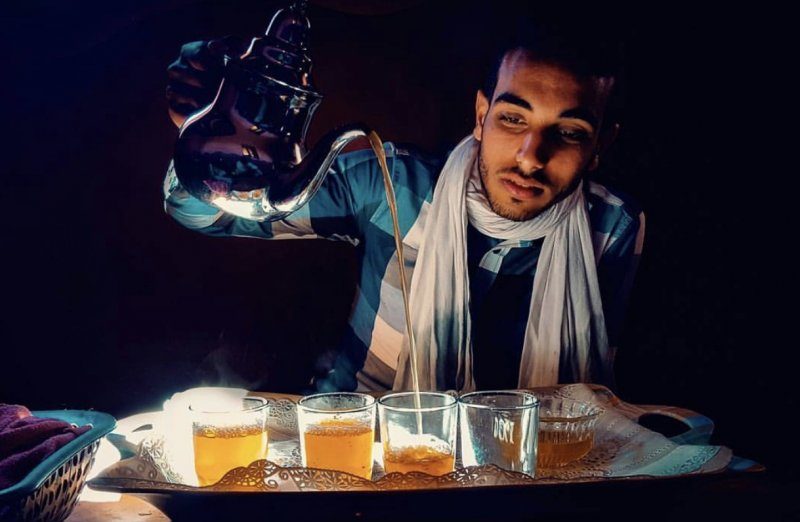
Berber hospitality is famous and it is very common to be invited to the home of someone. It is customary to remove your shoes on entry to a home.If you visit a home you will be offered sweet mint tea and often a meal.
Be careful what you admire in the home as it is often given to you as a gift if you show too much appreciation. It is also customary to take a gift to a home if you are invited and sweet pastries are most acceptable.
Berber culture is renowned through the world and you will experience hospitality that is unforgettable and a unique part of your stay.